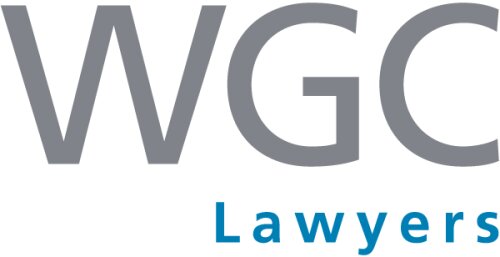Best Debt & Collection Lawyers in Sydney
Share your needs with us, get contacted by law firms.
Free. Takes 2 min.
List of the best lawyers in Sydney, Australia
About Debt & Collection Law in Sydney, Australia
Debt and collection law in Sydney, Australia, governs the practices of recovering money that is owed by individuals or businesses. This field of law addresses various aspects such as the rights of creditors to collect debts, the obligations and protections for debtors, and the processes available for resolving disputes. In Sydney, as with the rest of Australia, debt collection practices are regulated by the Australian Competition and Consumer Commission (ACCC) and the Australian Securities and Investments Commission (ASIC). These laws ensure that debt collection is carried out fairly, transparently, and without abusive or intrusive methods.
Why You May Need a Lawyer
There are several situations where you might need a lawyer specializing in debt and collection law. For instance, if you find yourself facing aggressive debt collection tactics or legal action from creditors, legal help can be crucial. Lawyers can provide guidance if you’re dealing with bankruptcy or insolvency, negotiating payment terms, disputing the amount claimed by a creditor, or ensuring that your rights are upheld under consumer protection laws. Additionally, if you're a business owner trying to recover unpaid invoices, a lawyer can assist in navigating the legal channels effectively.
Local Laws Overview
In Sydney, debt collection is primarily governed by the National Consumer Credit Protection Act 2009 and the associated National Credit Code. These regulate how consumer credit and debt collection can be conducted, including setting guidelines for fees, interest, and collection practices. The Australian Consumer Law (ACL) offers further consumer protections against unfair practices, and creditors must adhere to the Privacy Act 1988 concerning how they handle your personal information. The ACCC and ASIC have set out the guidelines on debt collection practices to prevent harassment and ensure respectful communication.
Frequently Asked Questions
How can I stop harassing debt collection practices?
If you are facing harassment from debt collectors, you can file a complaint with the ACCC or ASIC, who oversee compliance with fair debt collection guidelines. Engaging a lawyer can also help you understand your rights and take legal action if necessary.
What happens if I ignore a debt collection notice?
Ignoring a debt collection notice is not advisable as it may lead to legal action from the creditor, such as a default judgment against you. It’s important to respond promptly, whether to dispute the debt or negotiate a payment plan.
Can a debt collector contact my employer?
Debt collectors may only contact your employer to confirm your employment details. They cannot reveal details about your debt without your permission, preventing embarrassment or breaching your privacy.
What are my rights when dealing with debt collectors?
Under Australian law, you have the right to be treated fairly and respectfully without any undue harassment or misleading statements. Debt collectors must provide accurate information and give you options to negotiate repayment.
How can a lawyer help in debt settlement?
A lawyer can negotiate with creditors on your behalf to arrange a payment plan or settlement that you can afford. They can ensure that any agreement is documented legally to protect your interests.
What do I do if I can't afford to pay a debt?
If you find yourself unable to pay a debt, contacting the creditor to explain your situation is a good initial step. They may offer a hardship variation. Seeking advice from a financial counselor or a lawyer can provide more options.
Can I dispute a debt I believe is incorrect?
Yes, if you believe a debt is incorrect, you have the right to dispute it. Begin by requesting verification of the debt from the creditor, and consider consulting a lawyer if the issue is complex or you need assistance in mediation or court.
What are the consequences of declaring bankruptcy?
Declaring bankruptcy can relieve debts but also comes with significant consequences, such as affecting your credit rating, restricting certain types of employment, and having your assets managed by a trustee.
How long can a debt be collected?
In New South Wales, a creditor typically has six years from the date the debt became payable or the last time a payment was made to commence legal action to recover a debt.
What should I do if I receive a court summons for unpaid debt?
Receiving a court summons should be taken seriously. It’s crucial to seek legal advice immediately to discuss your next steps, which may include preparing a defense or negotiating a settlement.
Additional Resources
Here are some helpful resources and organizations for those seeking information or assistance with debt and collection issues:
- The Australian Competition and Consumer Commission (ACCC) for guidelines on fair debt collection practices.
- The Australian Securities and Investments Commission (ASIC) for information on financial services and consumer rights.
- Legal Aid New South Wales for legal advice and assistance to those eligible.
- The National Debt Helpline, offering free financial counseling services.
- The Australian Financial Complaints Authority (AFCA) for resolving disputes with financial services providers.
Next Steps
If you require legal assistance with a debt and collection matter, consider reaching out to a lawyer with experience in this field. Start by gathering all relevant documents and correspondence related to your case. Many law firms offer an initial consultation to discuss your situation and assess potential legal strategies. Additionally, consulting a financial counselor can offer insights into managing debts and understanding financial obligations. Prioritize finding a specialist who is familiar with local laws in Sydney to ensure the best advice and representation.
Lawzana helps you find the best lawyers and law firms in Sydney through a curated and pre-screened list of qualified legal professionals. Our platform offers rankings and detailed profiles of attorneys and law firms, allowing you to compare based on practice areas, including Debt & Collection, experience, and client feedback.
Each profile includes a description of the firm's areas of practice, client reviews, team members and partners, year of establishment, spoken languages, office locations, contact information, social media presence, and any published articles or resources. Most firms on our platform speak English and are experienced in both local and international legal matters.
Get a quote from top-rated law firms in Sydney, Australia — quickly, securely, and without unnecessary hassle.
Disclaimer:
The information provided on this page is for general informational purposes only and does not constitute legal advice. While we strive to ensure the accuracy and relevance of the content, legal information may change over time, and interpretations of the law can vary. You should always consult with a qualified legal professional for advice specific to your situation.
We disclaim all liability for actions taken or not taken based on the content of this page. If you believe any information is incorrect or outdated, please contact us, and we will review and update it where appropriate.











